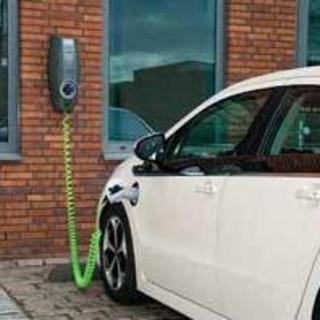
介绍:
Hello and welcome to "Life Upclose", your weekly show where we discuss people, lifestyles and China's ever-changing society. I'm Yao Yongmei in Beijing.
It's that time of year again: China's top legislature, the National People's Congress, or NPC, and top advisory body, the Chinese People's Political Consultative Conference, or CPPCC, are holding their annual meetings in Beijing.
Lawmakers and top political advisors are gathering in the Chinese capital for the annual two sessions, better known as "Liang3hui4" to discuss the country's various social and economic policies.
So, on this edition of "Life Upclose", let's take a look at some of the hottest issues discussed at this year's "Lianghui"; We will also meet a NPC deputy who is attending the annual session of the top legislative body for the 12th consecutive year.
Just ahead of the two sessions, smog has once again blanketed the Chinese capital, where it looks set to remain for at least a week, highlighting the urgent need for the government to take serious actions to curb pollution.
As the public grows increasingly aware of the health hazards presented by the city's heavy pollution, environmental protection will undoubtedly feature heavily at discussions in the ongoing two sessions.
Since there is no denying that motor vehicles are major contributors to air pollution, will promoting new energy cars help bring drastic change to the situation? How are new energy cars, and electric cars in particular, performing in China? And what does the future hold for the nascent industry?
Increasing numbers of the Chinese public are turning towards cars as their primary mode of transportation.
In 2013, vehicle sales in China totaled 21.98 million units, marking the country's fifth straight year as the world's largest auto market.
However, sales of new energy vehicles stood at just a little over 17-thousand units last year, with sales of pure electric cars even weaker, accounting for less than 0.1 percent of the country's total car sales.
Hangzhou resident Mr. Feng bought an electric car three years ago. He recalls what prompted him to make the purchase after owning a traditional car for many years.
"It seems that the running cost of electric-powered cars is much cheaper compared with gas-fuelled ones if we take the constantly hiking gas prices into consideration. Another notable aspect of electric vehicles is that when they stop running�C whether because they are stuck in traffic or waiting for a red light, they consume no electricity! Besides, unlike traditional cars, new-energy cars are noise-free and can help reduce air and noise pollutions. "
Environmentally-aware Feng says he was initially hesitant to purchase the new electric car when realizing it would cost him about 100-thousand Yuan even after deducting the government subsidy -- a price that is apparently not very competitive. Nonetheless, he decided to give the new product a try; a decision he later came to feel slightly regretful about:
"New-energy cars have a distance limit, so my car for example, needs to have its battery re-charged every 80 kilometers, and I have to make sure that there is a charging station on my route if I want to drive anywhere further than that distance. Gas stations are located everywhere, along highways and city roads, but there are very few electric-charging stations currently available."
After driving the electric car for three years, Feng says he has first-hand insight into why electric cars are not yet a big thing in China:
"In short, potential customers have been put off by the high cost of electric cars, their small driving range and, most particularly, the underdeveloped charging infrastructure."
According to Luo Jun, the CEO of Asian Manufacturing Association, although China has made significant efforts to encourage the development of electric powered vehicles to reduce emission levels, further progress needs to be made before a significant increase in sales can be achieved.
"China started to promote clean energy cars in 2009, but the situation is far from encouraging. There are few purchases from individuals in the country due to high prices, safety concerns and an underdeveloped supporting infrastructure.
Consumers bought less than 20,000 new-energy cars last year, highlighting the challenge China faces in meeting its sales target of 500,000 vehicles by 2015.
A recent McKinsey & Co report ranks the maturity of the Chinese EV market fifth in the world after Japan, the United States, France and Germany. Six indexes were used to evaluate the market's maturity level, including supply, market share, research and development capabilities."
China's Finance Ministry has recently announced that it will expand the incentives it will offer in the new energy car sector and its subsidy policy will continue even after the program expires at the end of 2015.
The current subsidies of up to 60,000 Yuan are available for the purchase of an all-electric battery car and up to 35,000 Yuan for a "near all-electric" plug-in vehicle were extended for a further three years at the end of 2012.
Liu Chongxi is the president of China Automobile Industry Engineering Corporation. Liu is also a member to the Chinese People's Political Consultative Conference. He is rendering a proposal on promoting green cars around China to the top advisory body's annual meeting. Liu suggests new energy cars been widely used in the taxi industry:
"Taxis are running in the city all the time. Due to their high number and long working hours, green cars could save a lot of energy and cut emissions compared with the use of motor vehicles.”
大家还在听

